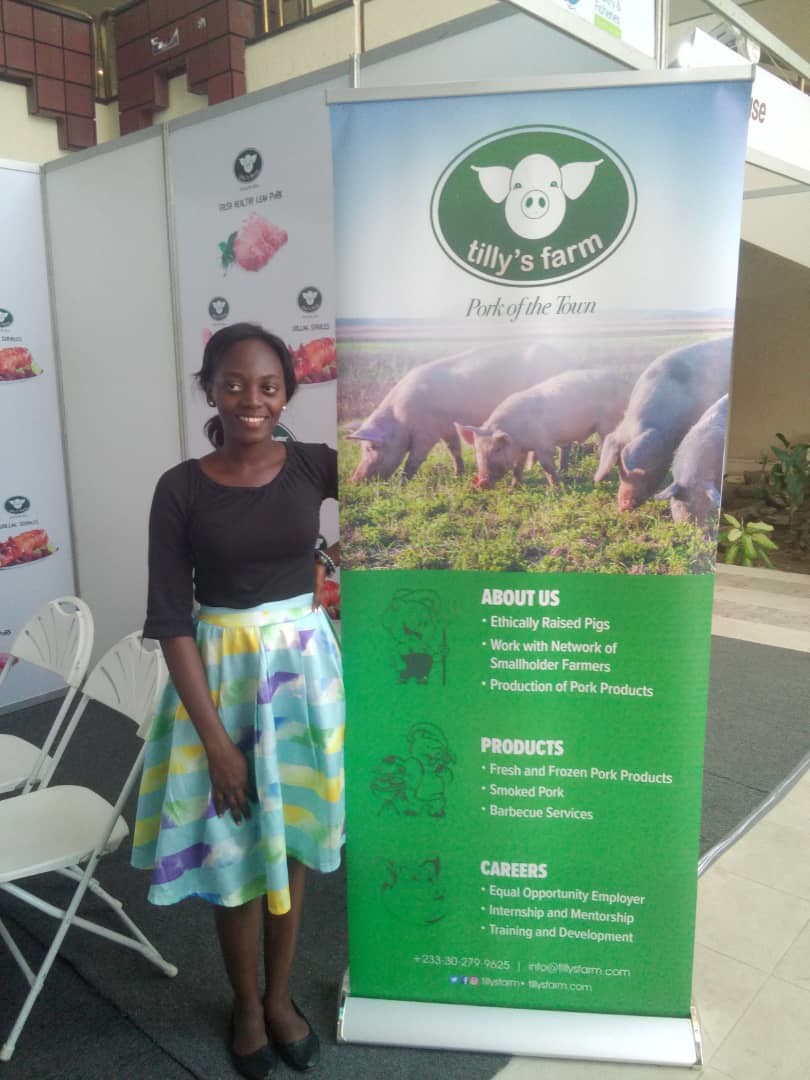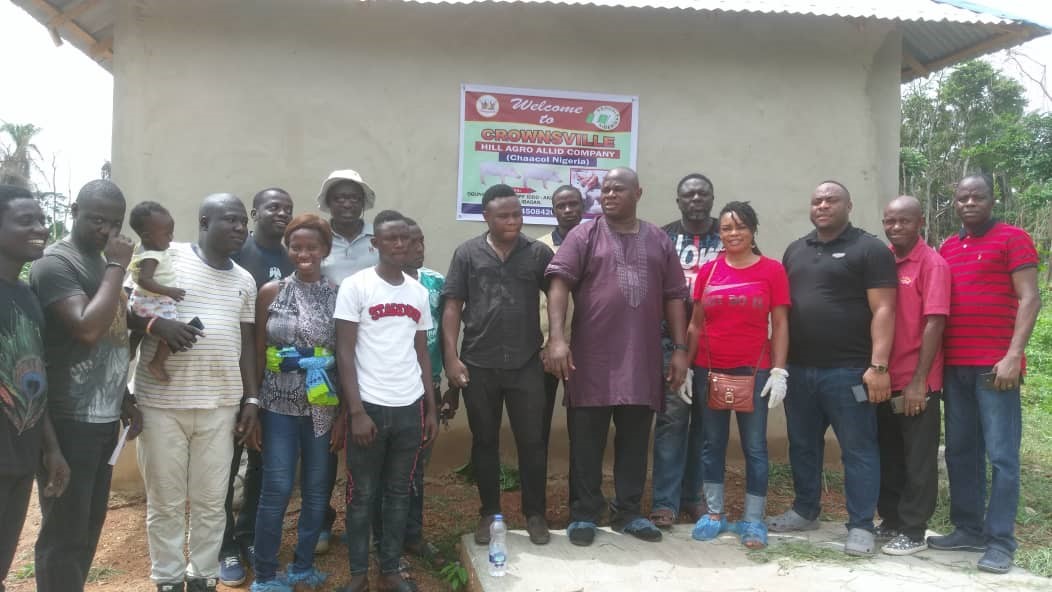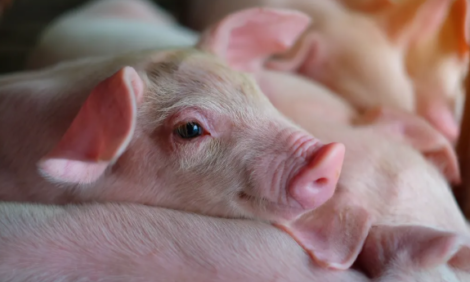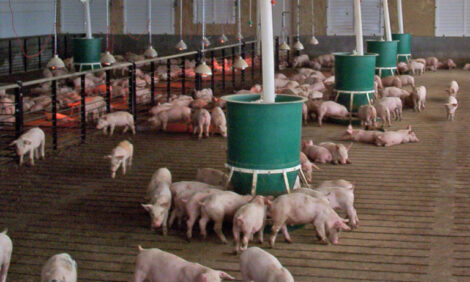



Big opportunities for pig farmers in West Africa
For many decades, pork consumption in West Africa was minimal, primarily due to religious and cultural custom, however this has changed drastically, and it is reported that pork consumption is only on the rise.Urbanisation and exponential population increase in West Africa has put pork on par with chicken, beef and fish in popularity. Add to this the availability of mass-produced feed ingredients and increasing number of educated and skilled pig farmers with sound appreciation of how to achieve profitable pig production, and you have a growing pork industry meeting increasing demand.
This change in consumer habits and the economic benefits of farming has opened up a whole world of opportunity for young entrepreneurs to pursue a new way of pig farming.
Meeting the demands of a growing population
Until recently, only the Ashanti black pig – hardy and disease resistant but only reaching 50 kg slaughter weight – was produced and consumed by a small number of people. However, even when pork consumption was generally disapproved, a substantial amount of pork, especially trotters, was being imported from Holland. Pork products, particularly bacon and sausages, have seemingly always been on the supermarket shelves across West Africa.
In Ghana, Pork Show 1986 brought a boom in pork production that has continued to this day. In Nigeria, pork has always been a popular delicacy and pig farmers in neighbouring regions have always targeted that market.
The Ivory Coast has also been a major consumer of imported pork products. The civil war between 2002 and 2007 destroyed most commercial farming activity, but among the activities that have been gradually restored is pig farming. The introduction of exotic breeds and artificial insemination programmes has allowed pig farming to register modest progress, even in countries with majority Muslim populations like Burkina Faso, Sierra Leone and Guinea.
Disposable income
A sizeable portion of the population in West Africa have experienced an increase in their disposable income, primarily those living in urban areas. Eating out has become a more regular occurrence and with the many restaurants, ‘chop bars’ and street vendors present all over the cities and towns, finding a great pork dish is not difficult.
Pork joints are also located near many drinking spots, where workers cool off with beer and pork kebabs. There are also dedicated pork restaurants where one would always find loyal customers enjoying pork soup or stew with maize meal, yam or rice, and vegetables.
Young talent
Many of West Africa’s livestock farmers are of the older generation, but one interesting phenomenon becoming more apparent is the entry of young graduates, who are keen to acquire the skills for running profitable ventures. They are attending the increasing number of pork fairs, courses and training programmes available in the cities and online. The lecture, ‘How to start a profitable pig farm’ by Max Hammond, one of Ghana’s successful pig farmers, was among the highlights of the recent Livestock and Poultry Expo held in Accra in August 2019.

© Efua Okai
Feed quality
Availability of quality feed is providing a major boost to pig production in West Africa. Maize, the main component of poultry, fish and pig diets has always been in short supply, because it is also the main component of human diets and a major industrial raw material. In the last few years, cassava and rice bran have proved to be viable alternative sources. Due to concerns about toxic cyanogenic glucosides in raw cassava, it was only used in limited quantities in pig feed, but this challenge has been solved. It has been found that soaking entire cassava tubers for three days enables fermentation to take place, and makes the cassava tastier and the nutrients from the cassava more absorbable. George Darko, owner of a 400 population pig farm, describes this as “the best thing that happened to me since I entered pig farming”.
Nigeria’s ban on rice imports have given a major boost to local production, releasing vast quantities of rice ban for inclusion in pig feed. Commercial feed production has increased substantially, and producers no longer import raw materials. The giant Sankofa Feed Company based in Ghana, which until recently produced mainly poultry feed, has now resumed production of pig feed, targeting the local and neighbouring markets. Agricare is also doing same. Yet a further boost will be given when the use of black soldier fly (BSF) as protein in pig feed becomes popular. The first production of fish feed using BSF has started in Ghana, and a number of aid agencies are promoting small scale production for use in livestock production. This will combat the need to import soya meal, currently the main protein source used by African livestock farmers.

© Efua Okai
The future of pig farming in West Africa
The potential of West Africa’s pork industry can be seen from the fact that the sub-region is still a major importer of pork products.
“The supermarkets are just full of it,” says Edem Hervie, a Togo-based pig farmer.
“That is both our problem and our inspiration. We only need to produce quality products.
“We will replace imports with local products.”
The pork value chain is large, from input production to farming to processing and marketing. There’s a lot of employment opportunities there and fortunately, the demand is increasing.
Veterinary services for the pork industry have also improved across West Africa, however, one improvement of note is the enhanced facilities at the Accra Veterinary laboratory (AVOL). The AVOL’s capacity for early identification of diseases has proven effective in the early identification of two ASF outbreaks in Ghana. AVOL facilities are available to other West African states.









